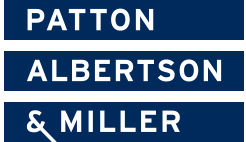To shred or not to shred, that is the question!
We get this question periodically from clients as we all become more aware of how our personal information, in the hands of a “bad actor”, can have negative and long-term effects. That is why Patton Albertson & Miller recommends a shredder for your home. Shredding important papers can prevent a crook from obtaining your personal data and using it to drain your accounts or open new ones in your name. You do not have to shred every piece of paper you accumulate. Some documents do not contain anything an identity thief can use. I have listed the documents you should shred, the ones you do not have to shred but might want to for extra security, and papers you can just toss without shredding.
Shred:
• Monthly bills. Even if you bank online, also shred payment coupons, which might contain your full account number, even if the bill did not;
• Receipts or other papers that show your signature, which identity thieves could use to forge other documents;
• Employer pay stubs;
• Documents that contain account information, such as statements from your bank, credit-card companies, 401(k) administrator, and broker and other investment statements. Do not forget courtesy checks from your credit-card issuer or bank. Call that source and ask it to stop sending the checks;
• Anything that contains your Social Security number, including annual statements from the Social Security Administration. Do not forget old identification cards, including an expired driver's license;
• Expired credit cards, and pre-screened credit-card offers and applications, even if they contain incorrect personal information. All can be used to obtain fake credit cards;
• Explanation-of-benefits forms from your medical insurer. They usually include your member identification number, which leaves you vulnerable to medical-identification theft. Also, shred papers and labels with prescription numbers on them;
• Tax forms and tax-related documents more than seven years old; and
• Any documents that list a password or PIN, and anything else with personal information that you would not want a stranger to see.
Consider shredding:
• All mail from your financial institution, including change-of-terms notices. Even documents that do not have account information can tell fraudsters a little more about you than you might want them to know; and
• Documents from companies you have done business with recently, including those from recent travel. Thieves could call you masquerading as a representative from one of those businesses to try to trick you into disclosing personal information.
Toss without shredding:
• Mail that contains only your name and address, if that is public information and easy to find elsewhere. That includes items such as catalogs or flyers that are not from a financial institution; and
• Junk mail addressed to "Resident" or "Occupant."
As reminder, we extend shredding services to our clients. If you lack a shredder, feel free to bring it to us to shred on your behalf. If you are considering the purchase of a shredder, we encourage you to buy a cross-cut (smaller, square pieces) versus strip-cut (long strips) model as it does a better job of shredding the documents and making it more difficult for the information to be put back together like a puzzle.
By: R. David Maloy, Jr., CFP®

